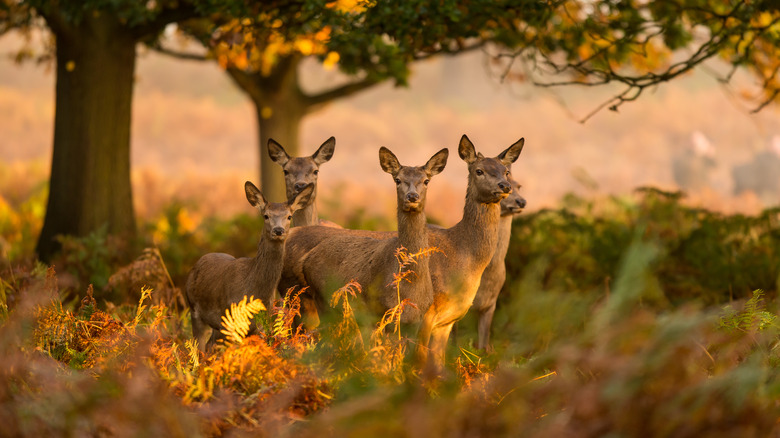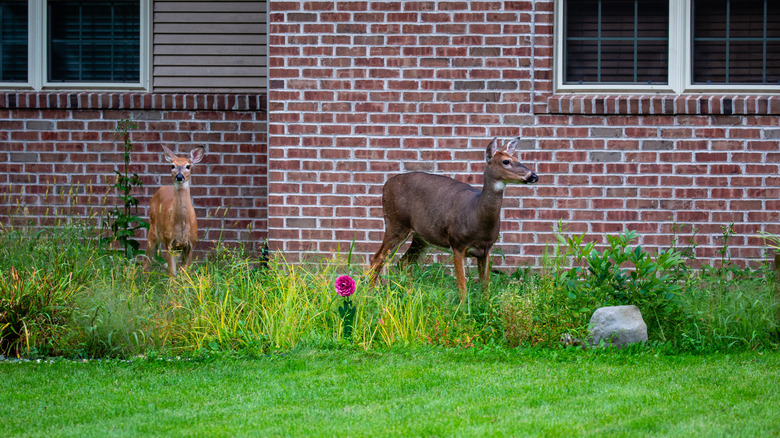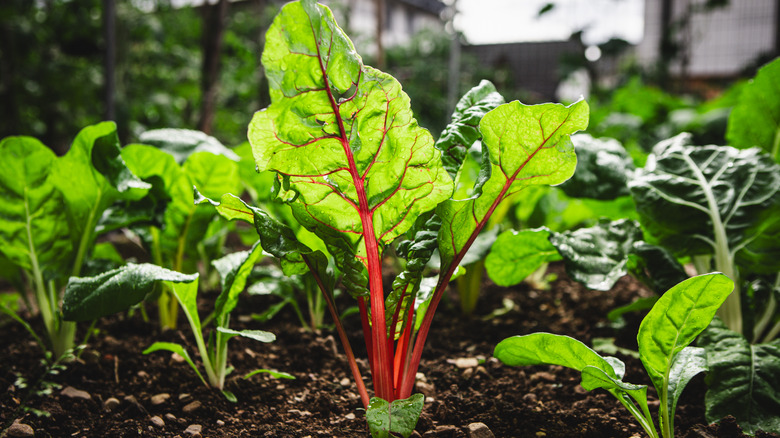Deer-Resistant Plants Are Hardy Against A Little Nibble—but Not All
Most gardeners don't want to share their crops or their flowers with the local deer population, especially in areas where deer can wander through your yard in large herds. In response to this problem, it is common for gardeners and homeowners to seek relief by planting deer-resistant plants. These are plants that deer tend to find less desirable and, therefore, generally make an effort to avoid. For example, if you have onions on one side of your garden and strawberries on the other, chances are, deer will gravitate towards your strawberries long before they even consider nibbling on your onions. However, that doesn't necessarily mean those onions will never fall prey to grazing. Some gardeners are surprised to learn that deer-resistant doesn't mean deer-proof.
Several factors contribute to the eating habits of deer, and, as such, gardeners generally need to use a multi-faceted approach to protecting their garden in order to truly make it deer-proof. While it's true that there are several deer-resistant plants that can save your garden, deer will ignore their own palates if they are hungry enough. Luckily, there are other methods you can combine with planting deer-resistant plants, and some plants that will be more effective than others in protecting your garden.
Why some deer-resistant plants still fall victim to grazing (and what to do about it)
The most common reason deer start eating crops that they normally would avoid is hunger. When food is scarce, especially from October to February, deer will eat almost anything. They have even been known to chow down on garlic or spicy peppers if they are starving. There are two methods that you can employ to keep deer away from your garden for good: deterrence and exclusion.
First, be strategic with your deer-resistant planting. Use aromatic plants like herbs or flowers that are considered deer-resistant to border the garden, keeping deer favorites on the inside of your garden. Or you can plant the deer-resistant plants as companion plants to your more attractive crops. Second, block their access. Deer spend their days traveling vast areas, browsing for food. If you cut off their access to your garden and line it with aromas they find unpleasant, they will generally move along to more accessible options. You can also try lining your fences with some natural ingredients to repel deer from your yard and garden.
Deer-resistant plants that don't always work (and some that do)
Just because a plant says on the label that it is deer-resistant doesn't mean it is going to be the best option for your garden. Some plants are more deer-resistant than others, while some plants keep deer away most of the time, unless they are desperate. Deer are naturally attracted to certain plants, such as carrots, peas, beans, and beets. Other plants they will avoid, including rhubarb, which is toxic for them. However, there are some plants that they simply dislike, but they won't necessarily be deterred by them. These include certain deer-resistant herbs, such as basil and cilantro. They might also nibble on greens such as kale, brussels sprouts, bok choy, and chard. Root vegetables, like radishes, rutabagas, and potatoes, could also be damaged on occasion.
Deer tend to avoid aromatic plants that they find unpleasant at all costs. Vegetables they will avoid more frequently include asparagus, garlic, eggplant, artichokes, leeks, peppers, and onions. Herbs they avoid include dill, fennel, lavender, mint, sage, and thyme. Flowers they avoid include yarrow, monkshood, milkweed, poppy, bleeding heart, foxglove, and shasta daisy.


